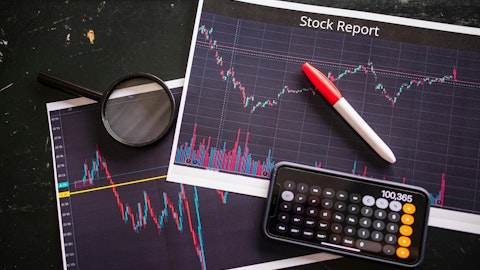Choosing the right forex trading platform is one of the most important steps for any trader. Your choice affects how quickly trades execute, what costs you pay, and how safely your funds are handled. A recent market overview, based on the comparison of forex apps, shows that understanding a few key performance metrics can help traders make smarter decisions and reduce unnecessary risks.
How Regulation Defines Platform Safety
The first thing to check is the regulation. In the UK, reliable forex platforms are authorised and supervised by the Financial Conduct Authority (FCA). This means your funds are protected under strict client money rules, and brokers must follow fair trading standards.
Platforms regulated by the FCA must:
- Keep client funds in segregated accounts separate from company money.
- Provide transparent pricing and regular reporting.
- Maintain adequate capital reserves to stay solvent during market shocks.
Unregulated or offshore brokers might offer higher leverage, but they also carry far greater risks. Always confirm a broker’s licence number on the official FCA Register before opening an account.
Why Spreads and Fees Matter
The next key metric is trading costs, which include spreads and commissions.
- Spread: The difference between the buying (bid) and selling (ask) price of a currency pair.
- Commission: A flat fee per trade, used by some brokers instead of wider spreads.
Even small cost differences can add up over time. For instance, a broker offering a 0.8-pip spread on EUR/USD is cheaper than one offering a 1.5-pip spread if everything else is equal.
Also review overnight financing charges (known as swap rates) and any withdrawal or inactivity fees. These charges can quietly reduce your overall returns if left unchecked. For example, the findings in the XS review highlight how trading fees and execution quality can differ widely between brokers, even when they appear similar at first glance.
What Execution Speed and Reliability Tell You
Execution speed means how quickly your trade goes through after you press “buy” or “sell.” If there’s a delay, called slippage, you might earn less or even lose more, especially when prices move fast.
Good brokers use no dealing desk (NDD) or straight-through processing (STP) systems. These send your orders straight to the market, which helps avoid price changes or waiting time.
Speed is important, but reliability matters more. A strong platform should process trades within milliseconds and stay stable even when the market gets busy.
You can check how fast and accurate a broker is by looking at their execution statistics on their website. Many also let you test their system with a demo account before trading for real.
Your internet connection also plays a big role. If it’s slow or unstable, your trades might lag. Using a Virtual Private Server (VPS) can help keep your connection steady, especially if you trade automatically or around the clock.
Which Platforms Offer the Best Trading Tools
A platform’s built-in tools make a major difference in your trading experience. Look for:
- Charting and analysis: Advanced indicators, drawing tools, and multiple timeframes.
- Automation: Options for algorithmic or copy trading so trades can run automatically under set conditions.
- Market research: Real-time news, analytics, and economic calendars for better decision-making.
MetaTrader 4 (MT4) and MetaTrader 5 (MT5) remain the most popular choices for their flexibility and third-party plugins. However, many brokers now offer modern, in-house platforms that include integrated analytics and AI-based alerts. Choose one that matches your strategy and comfort with technology.
How Account Types and Leverage Affect Traders
Most brokers offer several account types designed for different trading styles:
- Standard accounts: Suited for most retail traders, with moderate spreads and no commissions.
- ECN accounts (Electronic Communication Network): Provide direct access to liquidity providers, tighter spreads, and a small per-trade fee.
Leverage allows you to trade larger positions than your deposit would normally allow. It is expressed as a ratio, for example, 1:30. In the UK, retail traders are limited to 1:30 on major currency pairs under FCA rules. Higher leverage is available only to professional clients who meet specific criteria.
Traders considering more flexible funding models or alternative setups may also look into proprietary trading options. A recent analysis of prop trading firms explains how these companies operate, their risk rules, and what to check before signing up.
Remember that while leverage can increase profits, it can also magnify losses just as easily.
Why Platform Usability and Mobile Access Matter
A user-friendly platform makes trading less stressful and more efficient, particularly for beginners. Look for clear menus, simple chart navigation, and confirmation steps that reduce errors.
As more traders monitor positions on their phones, mobile access has become essential. The best trading apps mirror desktop features, offering full charting tools, price alerts, and quick execution on mobile devices. Ease of use can make a big difference in your day-to-day trading routine.
How Deposit and Withdrawal Methods Indicate Credibility
Funding and withdrawing your money should be straightforward. Reputable brokers support:
- Major debit and credit cards.
- Bank transfers.
- Trusted e-wallets such as PayPal or Skrill.
Processing times should be transparent and predictable. Quality brokers typically offer instant deposits and withdrawals within 24 to 48 hours. Avoid brokers with unclear refund policies or hidden processing delays, as these can signal poor management or liquidity issues.
What Market Range and Product Variety Show
A good forex platform should give access to many currency pairs, giving traders more options.
This usually includes:
- Major pairs: GBP/USD, EUR/USD, and USD/JPY. These are the most traded currencies and have low spreads.
- Minor and exotic pairs: For example, EUR/GBP, USD/TRY, or GBP/ZAR. These pairs can offer bigger profit chances but also higher risk.
A wider market range means you can trade at different times and in different regions. If the US market is quiet, you might still find good moves in European or Asian pairs.
Many brokers also let you trade CFDs (Contracts for Difference) on other assets. These include:
- Commodities like gold, silver, or oil.
- Indices such as the FTSE 100 or S&P 500.
- Cryptocurrencies like Bitcoin or Ethereum.
Having these options helps you spread your risk and explore new markets from one account. But remember, CFDs use leverage, which can grow both profits and losses. Beginners should start with major currency pairs and learn how the market moves before trying riskier products.
The Importance of Customer Support and Education
Responsive customer support is crucial, especially when issues arise during live trading. Look for platforms offering 24/5 or 24/7 service via live chat, email, or phone. Fast, knowledgeable responses can prevent minor problems from becoming costly.
Education is another important sign of a quality broker. Tutorials, webinars, and market insights help traders build confidence and develop better strategies. Brokers that invest in client education tend to foster more informed and loyal customers.
Data Security and Transparency as Final Filters
Security and transparency protect both your funds and your trust. A good broker should use:
- SSL encryption for data protection.
- Two-factor authentication for account access.
- Segregated client accounts to separate your funds from company assets.
Reputable firms also publish execution statistics and financial reports, showing accountability. Transparent disclosure about spreads, fees, and potential conflicts of interest helps you make informed choices before depositing funds.
Conclusion
When you compare forex trading platforms, focus on what you can measure: regulation, trading costs, execution quality, and ease of use. These things matter more than bold promises or flashy ads.
A trusted, well-regulated platform provides a safer, smoother trading experience. It should be clear about its fees, reliable during busy markets, and simple to navigate.
The best platform is the one that fits your goals, skill level, and how much risk you are ready to take. By checking these key factors first, you build a stronger base for confident and responsible trading.





